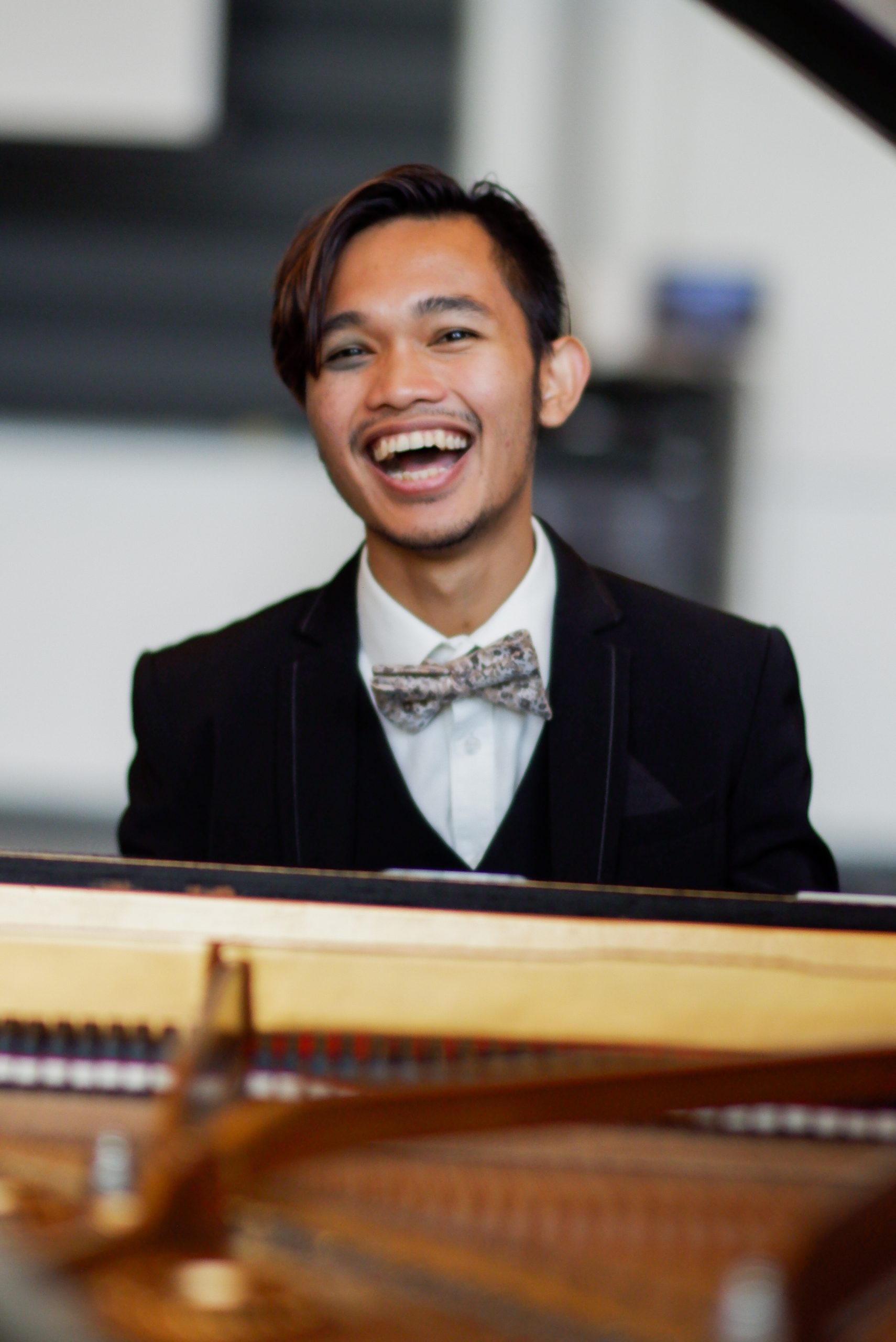Paul Cosme
Graduate Assistant
Filipino composer/scholar Paul Gabriel L. Cosme (b. 2000) blends and breaks boundaries in his constant search for home. Being at the interstices of his native Philippines, its diaspora, and its neighbors to the East and the West, Paul’s works seek to make connections and elucidate shared histories between various cultures and communities that he has since called his home.
As a composer, Paul combines various media, forms, and sound worlds from Asian and Western traditions with classical, pop & rock, jazz, and traditional artists from the United States and through Asia and the Pacific. His music often draws from and engages narratives of immigration, social issues, diaspora, poetry, local rituals, myths, and mythologies. He collaborates with musicians and groups such as the JACK Quartet, taiko master Kenny Endo, shakuhachi player Christopher Blasdel, Gugak musicians from Seoul National University, kulintang player Ronald Querian “kulintronica”, the Robert Bosch College String Ensemble in Germany, the BIPOC-centered Sugar Hill Salon Collective in New York, the University of Hawai’i Contemporary Music Ensemble, and many musicians he considers his dear friends.
He is currently one of the winning composers of Edward T. Cone Institute where his work will be premiered by the New Jersey Symphony Orchestra. He is also the inaugural winner of the Nā Haku Mele Competition of the Hawaiʻi Chapter of the American Choral Directors Association where he reimagined one of Queen Liliʻuokalani’s works.
When Paul is not composing, he likes to improvise on the kulintang, a set of bronze knobbed gongs from Mindanao, Southern Philippines, which he had the fortune to play in the Honolulu premiere of 2022 Pulitzer Prize winner and Navajo composer Raven Chacon and Carcross/Tagish curator Candice Hopkins’s Dispatch.
As a scholar, Paul investigates Filipino so-called national culture(s)–from folk, “high” art, to pop–in the 20th and 21st centuries. His recent work traces developments in Filipino popular music, Original Pilipino Music, and national identity by comparing Filipina singer-songwriter Moira dela Torre and American popstar Taylor Swift. He currently works on two projects: the first examines Pagsamba (To Worship), a mass setting by Filipino National Artist José Montserrat Maceda, in relation to the cultural formation of the Filipino identity vis-à-vis colonialism, indigeneity, and religion. The second explores how various Filipina popular singing voices resist colonial modernity in the Philippines. His previous works were on Filipino National Artists Lucrecia Kasilag and her contributions to Philippine cultures, and analyses of her intercultural compositions. Paul received prizes and grants for his research and presented his work at international conferences and centers such as the University of Hawai’i Center for Philippine Studies, International Council for Traditional Music and Dance, and the International Association for the Study of Popular Music (IASPM).
Paul currently studies composition as a master’s student at the University of Hawai’i at Mānoa as a Graduate Degree Fellow at the East-West Center and the recipient of the Elizabeth Spann Award in the College of Arts. A winner of the Lila Bell Acheson Wallace Endowed Prize in Music, Paul graduated with highest honors from Macalester College where he majored in Music and International Studies. His teachers include Randy Bauer, Victoria Malawey, Donald Reid Womack, Takuma Itoh, and Thomas Osborne.
Paul loves dogs, the morning dew, Beethoven op. 132, Pinoy indie music, mangoes, and his favorite Filipino dish—sinigang.
